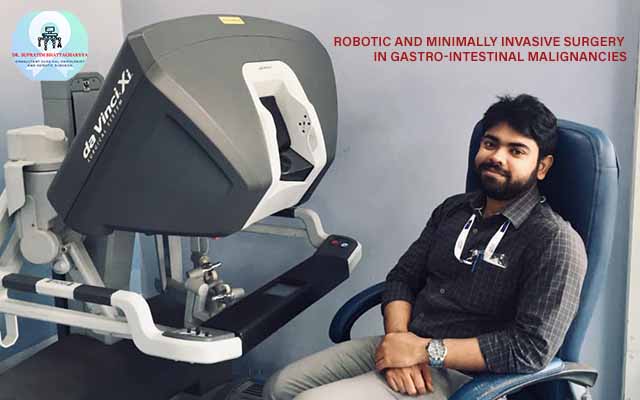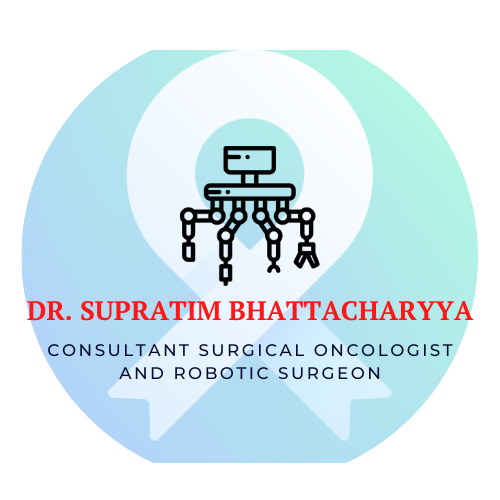
Dr. Supratim Bhattacharyya Best GI Cancer Doctor in Kolkata talks about Gastro-intestinal malignancies (food pipe cancer) which incorporates several entities, such as, esophageal cancer, stomach cancer, small and large bowel (colorectal) cancer etc. For decades, conventional open approach surgeries were considered the gold standard for cure from these malignancies. However, with the advent of minimally invasive surgical techniques, especially surgical robots, we have seen a paradigm shift of the surgical approach to these cancers, says Best Robotic Cancer Surgeon in Kolkata Dr. Supratim Bhattacharyya. Although the first usage of surgical robots dates back to 1985, robotic surgery for treatment of cancer has been streamlined largely during the second decade of the twenty-first century. The da Vinci Robotic Surgical System (by Intuitive Surgical, Sunnyvale, CA) got the approval by the US Food and Drug Administration (FDA) in 2000 for surgical usage. The latest fourth generation robots (the da Vinci X/Xi) received FDA approval under the Federal Food, Drug, and Cosmetic Act in December 2020. So far this system has been used and studied extensively in various cancers of GI origin, namely esophageal cancer, gastric cancer, and colorectal cancer to conclude the safety and improved efficacy as compared to traditional open approach surgery. It offers several advantages over open and laparoscopic surgery, such as 3D high definition magnified vision, digital camera zoom, camera stability, endowrist movements with seven degrees of freedom, improved dexterity, elimination of hand tremor, better ergonomics, motion scaling, telemonitoring etc. In today’s world, we care for the patients to such an extent that we not only think about the cure from cancer, but we ensure a better overall treatment experience and quality of life post treatment. Robotic surgery helps us offer a complete cure from cancer with minimal postoperative morbidity and hospital stay. The patients go back to their regular life much faster than usual. And that’s the primary goal of precision oncology in this era.
